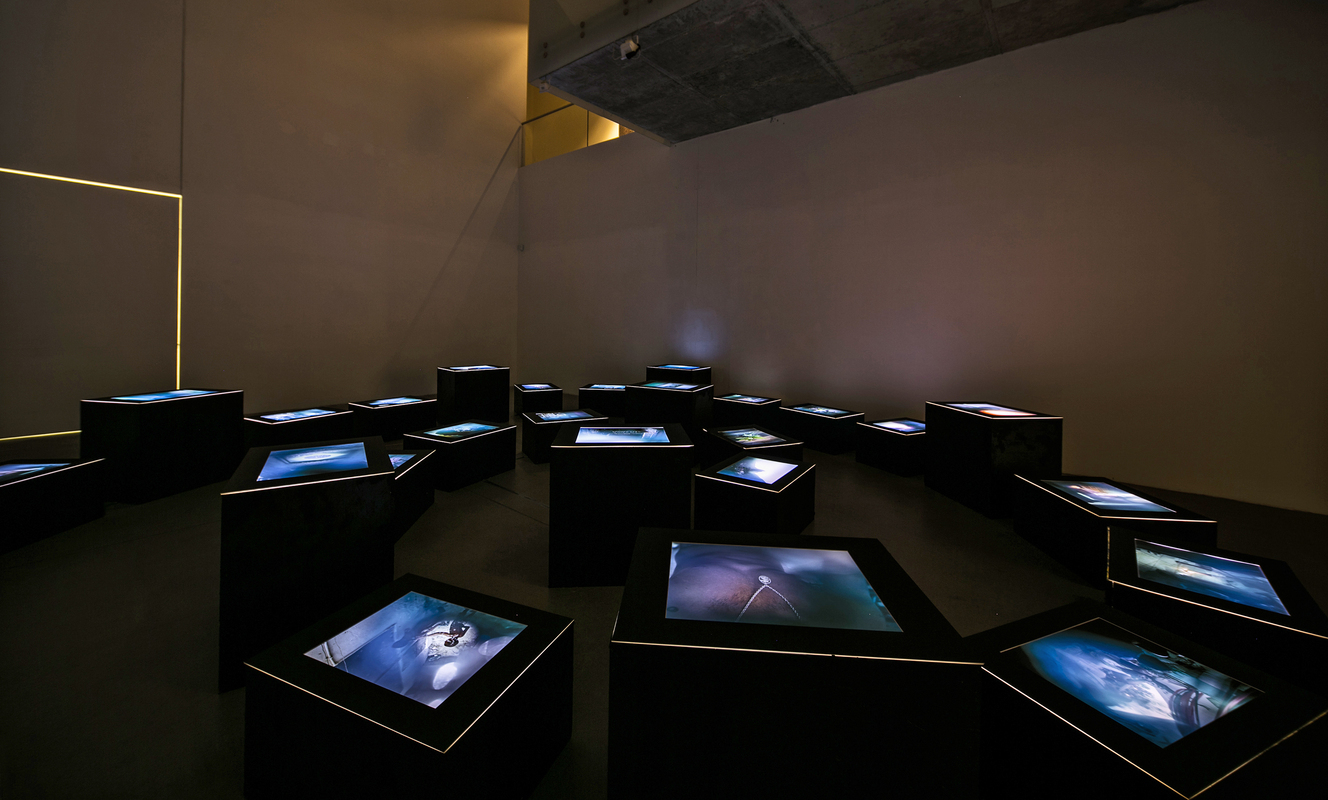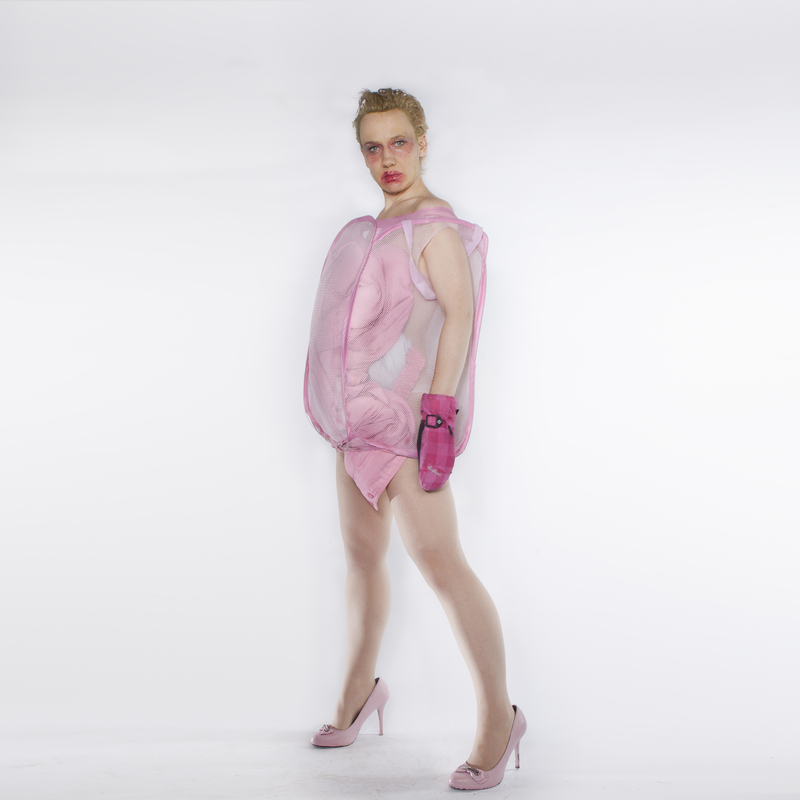
By clicking "Start Submission", you agree to be contacted by the host regarding this opportunity.
About
The accessibility and continuous development of digital imaging technologies and the drastic popularization of social media, especially those that are visually-based, have defined the previous decade and led to the pervasiveness of the photographic image -- from private communication, marketing and video game industries, to contemporary art. "Networked technologies," writes Astra Taylor, were supposed to "put professionals and amateurs on an even playing field, or even give the latter an advantage," and to enable artists and writers to "thrive without institutional backing" and "reach their audiences directly." But the initial optimism, based on the presumed democratic but also aesthetic potential of digital culture, subsided once it became apparent that market interests were hindering a radical transformation of digital cultural production and distribution.
Reflecting on the crisis of representation, Hito Steyerl suggests that the popularization of visual representation through digital technologies has caused a serious crisis of political representation: "Visual representation matters, indeed, but not exactly in unison with other forms of representation. There is a serious imbalance between both. One the one hand, there is a huge number of images without referents; on the other, many people without representation."
Furthermore, visual culture has, to some extent, been homogenised by computer-generated images, digital filters and other image manipulation methods, which have also created new types of images that cannot be understood in terms of the existing aesthetic categories. Images that tend to replicate rather than represent. Should representation be replaced with replication, writes Steyerl, "what emerges is not the image of the body, but the body of the image on which the information itself is but a thin surface or differentiation, shaped by different natural, technological or political forces."
The 11th edition of Organ Vida focuses on the materiality of the image. We are interested in images that are political primarily in terms of how rather than what they represent. Images that offer a specific form of the intersection of facts and fiction, that are simultaneously explicitly "fake", "unreal", "falsified" and "authentic", but whose authenticity is manifested by showing the tensions and contradictions of contemporary digital culture. Images that aim to expand not the spectrum of the represented, but representation itself. Images that count upon their own commodification, using artistic intervention to semantically complicate and compound and bring to light precisely those processes that had led to its commodification, but without depriving us of fantasy. Images that self-reflect and encourage reflection. Images that unhesitatingly display hesitation.
We are interested in innovative photographic forms, but also various visual art projects -- videos, installations, performances -- that proceed from the photographic image, but at the same time relativize and/or expand it, step out into the space or transform into motion.
References:
Steyerl, Hito. "Ripping reality: Blind spots and wrecked data in 3D".
URL:https://www.eipcp.net/e/projects/heterolingual/files/hitosteyerl/index.html
Steyerl, Hito. "The Spam of the Earth: Withdrawal from Representation",
URL:https://www.e-flux.com/journal/32/68260/the-spam-of-the-earth-withdrawal-from-representation/
Taylor, Astra. 2014. The People's Platform: Taking Back Power and Culture in the Digital Age. Random House Canada.
About Call
ORGAN VIDA International Photography Organization based in Croatia invites artists from all over the world who work in the medium of photography as such or in an expanded form, video and sound, installation, collage to apply to this open call and respond to the given topic: Hesitant Images.
The selected artists will exhibit their work at the main curated exhibition during the 11th ORGAN VIDA — International Photography Festival at the Museum of Contemporary Art in Zagreb, June 17 – Sep 30 2020.
What winners receive
— Completely produced artwork (printed and framed, etc) — participating at main curated exhibition in Museum of Contemporary Art Zagreb, — exhibition catalog, — accomodation in Zagreb during the festival week — 30% discount at Portfolio Review
About Organ Vida
ORGAN VIDA International Photography Organisation is a leading Croatian institution for promoting and researching contemporary photography practices in Croatia and on the international scene since its foundation in 2008. It is a volunteer led non-profit, non-governmental organisation dedicated to promoting internationally contemporary photography, emerging and established photographers, and to creating platforms for knowledge exchange, education and for showcasing works of young and established contemporary photographers. There are several projects done by OV: ORGAN VIDA International Photography Festival, online magazine for contemporary photography OVmag, a national award for photography — Marina Viculin Award. Besides these, Organ Vida is a member of two european projects funded by EU: PARALLEL — European Photo Based Platform, and From St. Germain to EU - 100 years of a border. ORGAN VIDA annually holds open calls on different topics with the aim to stimulate critical thought and social dialogue through examining societal, political and personal issues. Interactivity, innovativeness, creativity and immersion are at the heart of what makes ORGAN VIDA such a successful festival – allowing it to become the biggest and freshest biannual photographic event in Southeast Europe and selected as one of the top 5 photography events in 2017 by The Guardian’s critic Sean O’Hagan. The main exhibition of the 10th International Organ Vida Festival (2018) titled “Engaged, Active, Aware: Women’s Perspectives Now” was awarded the prestigious Lucie Award.
How to enter
Send your artwork (at least one project with up to 25 photographs, images, sketches) via the Picter platform.
Judging criteria
Members of an international jury will have the task of evaluating and selecting 10 artworks that respond to the questions raised in the open call. We are interested in innovative photographic forms, but also various visual art projects – videos, installations, performances – that proceed from the photographic image, but at the same time relativize and/or expand it. The selected artists will exhibit their work at the 11th Organ Vida Photography Festival at the Museum of Contemporary Art in Zagreb, Jun 17 – Sep 30 2020.
Timeline
Requirements
Profile
- done
Address
- done
Biography with up to 1500 characters
- done
First name
- done
Last name
- done
Nationality
- done
Country of residence
- done
Birthday
Upload
- done
1 to 2 projects per submission
- done
1 to 25 files per project
- done
Allowed file types: JPG
- done
At least 1500px on the long edge
Descriptions
- done
Project title
- done
Project year
- done
Project description
Gallery
Jurors





Previous event










Previous Winners

![Cemre Yesil and Alice Caracciolo - Piet[r]a](https://assets.picter.com/contest-websites/organ-vida-open-call-2020-hesitant-images/previous-winners/2%20-%20Cemre%20Yesil%20and%20Alice%20Caracciolo%20-%20Piet%5Br%5Da.jpg)








Juror information
Christian Siekmeier
Occupation: Curator
Christian Siekmeier, born 1971, graduated with a BA Fine Art from London Guildhall in 1999 and a MFA Photography, Video and Related Media from School of Visual Arts in New York in 2004. In 2008 he founded EXILE in Berlin. EXILE is an amorphous independent platform and gallery for the exhibition of contemporary art. Since inauguration, EXILE has produced and hosted over 100 on-, and off-site 100 exhibitions. After ten years in Berlin EXILE moved to Vienna in Oct 2018.
Katrina Sluis
Occupation: Curator
Katrina Sluis is Head of Photography and Media Arts at the School of Art and Design, Australian National University and co-founder of the curatorial collective You Must Not Call It Photography If This Expression Hurts You. Prior to this, she was Senior Curator (Digital Programmes) at The Photographers’ Gallery, London and Co-Director of the Centre for the Study of the Networked Image, London South Bank University.
Steph Kretowicz
Occupation: Writer/Critic
Steph Kretowicz is a writer, editor and journalist specialising in music, contemporary art and online culture. Her writing appears in Flash Art, Dazed & Confused, Resident Advisor, The Fader and The Wire, as well as The Guardian, Somesuch Stories, and Oxford Artistic and Practice Based Research Platform, among others. Kretowicz is co-founder and editor of London-based arts publication AQNB.com, writer and editor at 3hd Festival and author of novel and cross-media narrative Somewhere I’ve Never Been, published by TLTRPreß and Pool in 2017.
Mirjam Kooiman
Occupation: Curator
Mirjam Kooiman is an art historian and curator at Foam Photography Museum Amsterdam, where she is responsible for a number of exhibitions with artists such as Ai Weiwei, Awoiska van der Molen, Paul Mpagi Sepuya and Daisuke Yokota. In 2017 she initiated collaborations with photography platforms in Mexico, Nigeria and Indonesia, in order to create an exchange of cultural knowledge on photography discourses worldwide. She is currently researching how photography relates to digital and virtual realities, AI, and gaming. She co-authored the book De Kunstmeisjes (Meulenhoff, 2019) and has contributed to magazines such as L'Internationale, Something We Africans Got, Migrant Journal, and Foam Magazine.
Vesna Mestric
Occupation: Curator
Vesna Meštrić, senior curator in Museum of Contemporary art, Zagreb. Graduated both Art History and Archaeology at the Faculty of Philosophy at the University of Zagreb. In 2005 she started to work in Museum of Contemporary Art (MSU) Zagreb as curator of Vjenceslav Richter and Nada Kareš Richter Collection and became head of Marie Luise Betlheim Collection in 2015. Her researchers interest includes contemporary art, avant-garde and postmodern movements in art and architecture, and also interpretation and new media in presentation of collection. She is coordinator and co-author of the European research exhibition project Bauhaus – Networking Ideas and Practice, co-author of educational project Runaway Art and curator of Vjenceslav Richter retrospective exhibition „Rebel with a vision“ awarded for which she received the annual award of Croatian Society of Art Historian for the best exhibition in 2017.
By clicking "Start Submission", you agree to be contacted by the host regarding this opportunity.